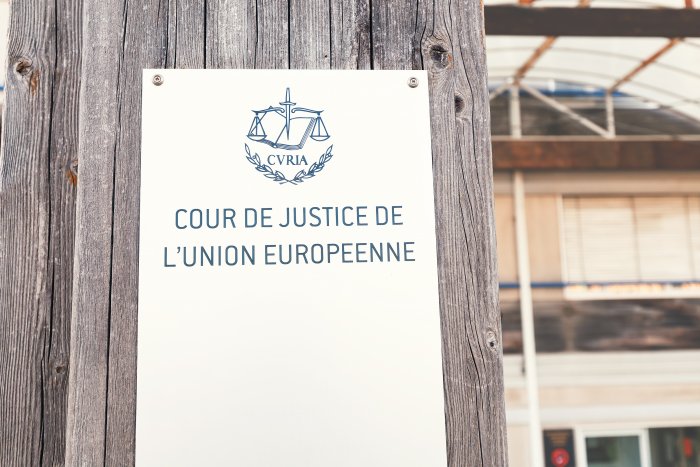European Commission refers Hungary to court over education, NGO laws

The European Commission announced Thursday it has taken the third step in separate infringement proceedings begun against Hungary due to amendments to the countryʼs Higher Education Law and legislation on foreign-funded NGOs, referring Hungary to the Court of Justice of the European Union (CJEU) in both cases.
In the case of the controversial amendments to Hungaryʼs Higher Education Law - which critics have charged target the Central European University (CEU) in particular - the European Commission issued a press release saying the amended legislation “disproportionally restricts EU and non-EU universities in their operations and needs to be brought back in line with EU law.”
Amendments to Hungaryʼs Higher Education Law approved by lawmakers in the spring require foreign colleges and universities in Hungary to operate on the basis of an intergovernmental agreement and to have a campus in the country in which they are based.
CEU, which is accredited in the U.S. but has just one campus, in Budapest, earlier said the changes to the law would make its continued operation in Budapest impossible, calling the amended legislation discriminatory and targeted at CEU directly.
The amendment prompted mass street demonstrations in solidarity with CEU, widespread condemnation from academics and European governments, as well as the U.S., and the initiation of the ongoing infringement procedure against Hungary.
In the preceding, second step of the infringement procedure on July 13, the EC sent its “reasoned opinion” with respect to the amendments, stating that the law “is not compatible with the freedom for higher education institutions to provide services and establish themselves anywhere in the EU” and “runs counter to the right of academic freedom, the right to education and the freedom to conduct a business as provided by the Charter of Fundamental Rights of the European Union and the Unionʼs legal obligations under international trade law.”
CEU was founded by Hungarian-born financier and philanthropist George Soros, against whom the Hungarian government has conducted increasingly personal attacks in recent months, culminating in the most recent national consultation pertaining to the alleged “Soros Plan” to forcibly resettle migrants in Europe.
NGO law also faces court battle
Also today, the European Commission took the third step in a separate infringement procedure related to recently adopted new Hungarian legislation on foreign-funded NGOs, likewise referring Hungary to the CJEU.
The Hungarian legislation requires NGOs that receive foreign funding of over HUF 7.2 million a year to specify that they are “organizations supported from abroad” in all publications, websites and press materials they disseminate. The legislation also establishes a reporting obligation for this funding, as well as sanctions for failure to comply with the provisions of the law.
The EC said that provisions in the NGO Law “indirectly discriminate and disproportionately restrict donations from abroad to civil society organizations,” adding that this also “violates the right to freedom of association and the rights to protection of private life and personal data enshrined in the Charter of Fundamental Rights of the European Union, read in conjunction with the EU Treaty provisions on the free movement of capital.”
Previously, when stepping up the infringement procedure on October 4 with the release of its “reasoned opinion,” the EC said Hungaryʼs responses to its initial “letter of formal notice,” the first step in the procedure, had failed to address the ECʼs “serious concerns.”
Step by step
According to the European Commission website, under the EU treaties, the Commission may take legal action – an infringement procedure – against any EU country that fails to implement EU law. The procedure follows a number of steps laid out in the EU treaties, each ending with a formal decision.
In the first step, the Commission sends a “letter of formal notice” to the country concerned, which must send a detailed reply within a specified period, usually two months.
If the Commission concludes that the country is failing to fulfill its obligations under EU law, it may take the second step, sending a “reasoned opinion,” which constitutes a formal request to comply with EU law, explaining why the Commission considers that the country is breaching EU law. It also requests that the EU country inform the Commission of the measures taken within a specified period, again usually two months.
If the EU country still does not comply, the Commission may take the third step and decide to refer the matter to the Court of Justice - as has now happened in both these cases.
If the EU country fails to communicate measures that implement the provisions of a directive in time, the Commission may then ask the Court to impose penalties.
SUPPORT THE BUDAPEST BUSINESS JOURNAL
Producing journalism that is worthy of the name is a costly business. For 27 years, the publishers, editors and reporters of the Budapest Business Journal have striven to bring you business news that works, information that you can trust, that is factual, accurate and presented without fear or favor.
Newspaper organizations across the globe have struggled to find a business model that allows them to continue to excel, without compromising their ability to perform. Most recently, some have experimented with the idea of involving their most important stakeholders, their readers.
We would like to offer that same opportunity to our readers. We would like to invite you to help us deliver the quality business journalism you require. Hit our Support the BBJ button and you can choose the how much and how often you send us your contributions.












